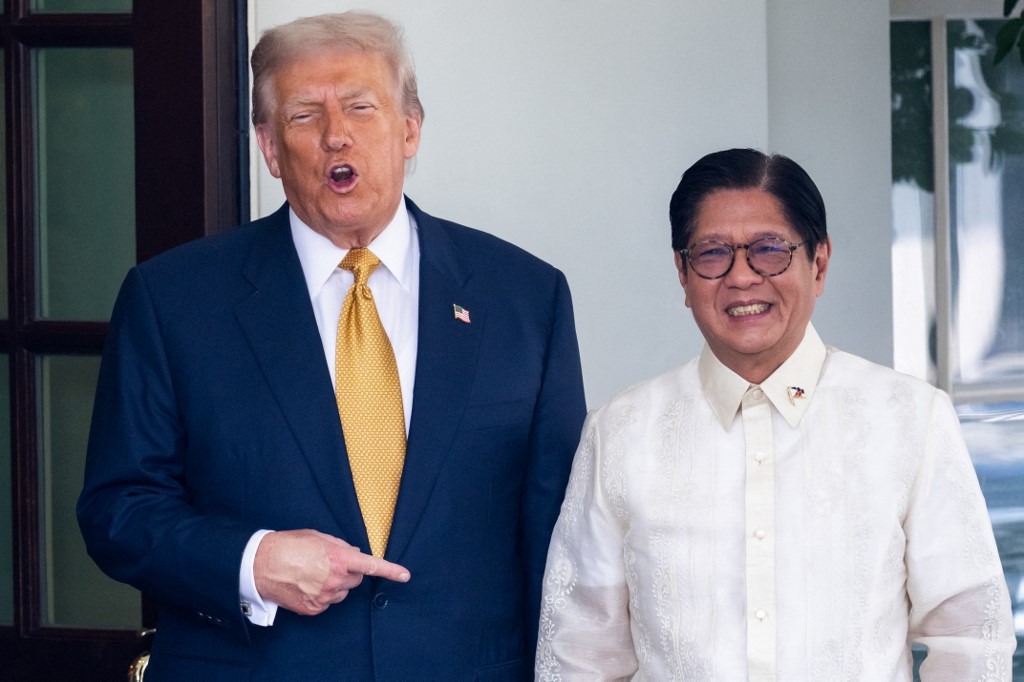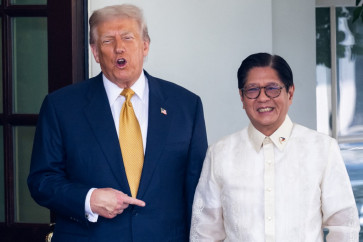Popular Reads
Top Results
Can't find what you're looking for?
View all search resultsPopular Reads
Top Results
Can't find what you're looking for?
View all search resultsDoes the Philippines’ strategic location mean anything to Trump?
Security and trade are not necessarily mutually exclusive domains, but with Trump throwing both allies and adversaries into the same basket, it remains to be seen whether security deals will translate into economic benefits.
Change text size
Gift Premium Articles
to Anyone
I
n his meetings this week with United States President Donald Trump in Washington, Philippine President Ferdinand Marcos Jr is navigating a challenging new reality: A place under America’s security umbrella no longer comes with a discount at the customs window.
When it comes to trade, Trump throws allies and adversaries into the same basket. But Marcos thinks he can negotiate an agreement that preserves and even strengthens the US-Philippines trade relationship.
The US gains a considerable strategic advantage from its access to nine Philippine military sites, part of the mutual defense treaty that has been in place since 1951. From Balabac in Palawan, which faces the disputed Spratly Islands, to airfields overlooking the Bashi Channel between Luzon and Taiwan, US military planners regard these outposts as indispensable to America’s new dispersed force posture, designed to counterbalance Chinese power in the region.
But this was not enough to shield Philippine steel exporters from US tariffs in 2018, during Trump’s first administration. Nor did it prevent Trump from reducing the trade advantages enjoyed by the Philippines under the Generalized System of Preferences. Instead, Trump has repeatedly argued that allies should pay for US protection.
Many of America’s allies have interpreted this as a demand for cash or market concessions, but Trump’s team walked away from a seemingly done deal with Japan: After months of shuttle diplomacy, the country still faces a 25 percent tariff on its exports to the US, scheduled to take effect on Aug. 1.
The same goes for South Korea, host of nearly 30,000 US troops, which had a prior tariff exemption eliminated in February, when the Trump administration decided that its electric vehicles threatened US jobs.
Meanwhile Australia, one-third of the AUKUS security partnership with the US and the United Kingdom, has been slapped with a baseline 10 percent tariff on nearly all its exports to the US, with more tariffs likely to come. Even the European Union has been told to expect 30 percent levies on its exports to the US, despite months of painstaking negotiations.



















